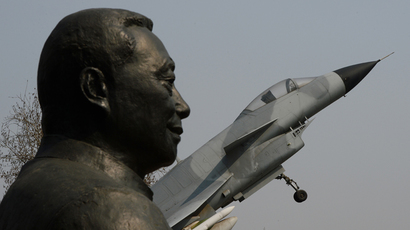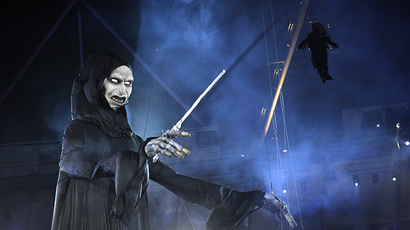Japan ratchets China tension by building radar near disputed islands
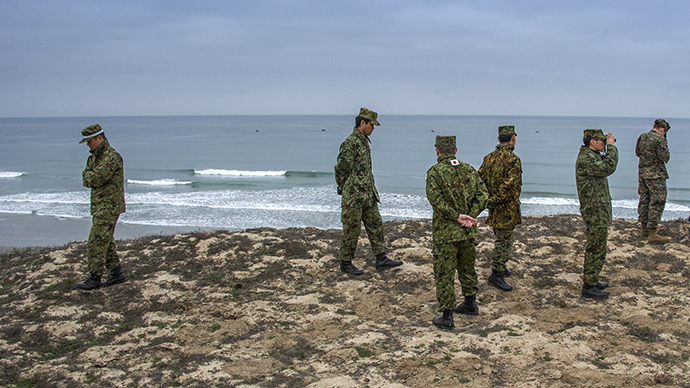
Tokyo is likely to provoke wrath from Beijing after starting work on a new radar station close to the disputed Senkaku, or Diaoyu Islands, that have soured relations between the two Asian powerhouses in recent years.
"This is the first deployment since the U.S. returned Okinawa in 1972, and calls for us to be more on guard are growing," Japanese Defense Minister Itsunori Onodera told media during a symbolic groundbreaking ceremony on Yonaguni Island on Saturday. "I want to build an operation able to properly defend islands that are part of Japan's territory."
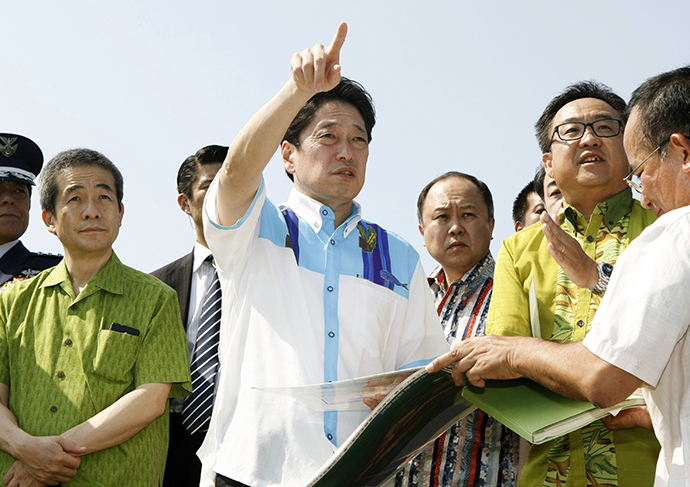
The high-tech radar outpost will be staffed by up to 150 soldiers
after it becomes operational in 2016.
The 30 sq. kilometer Yonaguni Island has a population of about
1,500, and no economic importance, and is far closer to China and
Taiwan than it is to Japan’s major isles.
But the station will give Tokyo an outpost from the contentious
Senkaku Islands, located 150 km to the north.
The uninhabited rocks, which have been in Japan’s possession
since the 19th century, are located in a key shipping lane, and
are thought to sit on large unexplored oil reserves.
Since the 1970s, China has insisted that they are part of its
territory, citing historic documents going back as far as the
14th century.
The stand-off has spiraled as China has grown more assertive
about the archipelagos off its coast, and began to rapidly
bolster its defense budget in the past decade.
A perceived threat from China has also stirred nationalistic
feelings in mainland Japan, and officials accused Beijing of
"attempts to change the status quo by coercion" in the
government’s latest defense plan, published in December last
year.
Last fiscal year, Prime Minister Shinzo Abe raised the defense
budget for the first time in more than a decade.
The two countries have symbolically signaled their defense
readiness by scrambling planes over 400 times in the past 12
months, and by complex warship maneuvers, with the latest
belligerent displays happening just last week.
A key role in any future resolution of the dispute is to be
played by the US – China’s biggest economic partner and Japan’s
staunch ally.
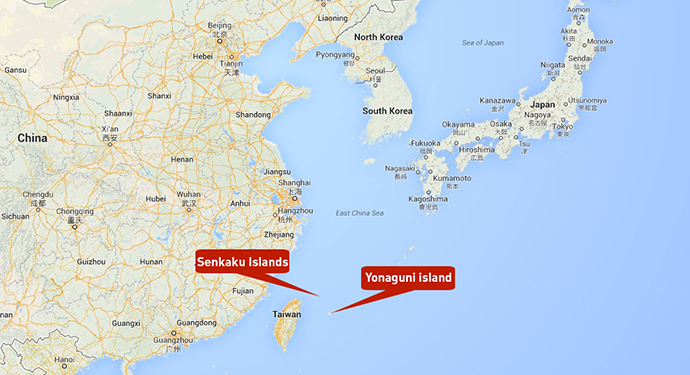
The first state visit in 18 years by a US president to Japan will take place next week, during which Barack Obama and Prime Minister Shinzo Abe are set to sign a joint statement on strengthening their security ties. Diplomatic sources indicate, however, that the document will not include any specific mention of the Senkaku Islands, to avoid aggravating Beijing.
Nonetheless, last week, the commander of the US Marines stationed in Japan said that the US would help Japan re-take the Senkaku Islands if China ever landed its forces on them.
Meanwhile, those on Yonaguni have broadly welcomed the promised investment of government funds into the sluggish local economy, electing a pro-base mayor last year.
Yet a vocal minority remains vehemently opposed to the militarization of an island that currently only has two policemen. Onodera was welcomed by a demonstration of around 50 islanders demanding the cancellation of government plans.
"Becoming a target is frightening, they won't talk to us about it, we haven't discussed it," one of the protesters told Reuters.













